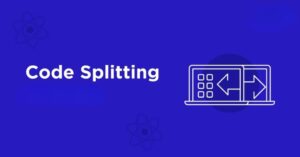Website speed optimization is crucial for improving user experience, enhancing search engine rankings, and increasing conversions. Here’s everything you need to know about optimizing your website’s speed to achieve optimal performance and maximize results.
Why Website Speed Matters
- User Experience: Fast-loading websites provide a seamless browsing experience, reducing bounce rates and increasing user engagement.
- SEO Impact: Page speed is a ranking factor for search engines like Google. Faster websites rank higher in search results, driving more organic traffic.
- Conversion Rates: Improved site speed leads to higher conversion rates, as users are more likely to complete transactions or sign up for services on fast-loading pages.
How to Optimize Website Speed
- Image Optimization: Compress images without compromising quality, use responsive images, and leverage next-gen formats like WebP to reduce file sizes and improve load times.
- Minimize HTTP Requests: Reduce the number of elements on your web pages (CSS, JavaScript files, images) to minimize HTTP requests, speeding up load times.
- Enable Browser Caching: Set expiration dates for resources on your website so returning visitors’ browsers can load the page without sending another HTTP request to the server.
- Use Content Delivery Networks (CDNs): Distribute your website’s static content across multiple servers worldwide to reduce latency and improve load times for users globally.
- Implement Lazy Loading: Load images and other non-essential resources only when they enter the viewport, rather than all at once, to prioritize above-the-fold content.
- Reduce Server Response Time: Improve server-side performance by upgrading hosting plans, optimizing databases, and implementing caching mechanisms to deliver content faster.
Tools for Measuring and Monitoring
- Google PageSpeed Insights: Analyzes the content of a web page and generates suggestions to make that page faster.
- GTmetrix: Provides actionable insights on how to optimize page load times by analyzing key performance indicators.
- Pingdom Tools: Tests load time and performance of a website and provides recommendations for improvements.
The Impact of Mobile Optimization
With a significant portion of internet traffic coming from mobile devices, optimizing your website for mobile users is essential. Ensure responsive design, reduce unnecessary elements, and prioritize mobile-specific optimizations to enhance user experience on smartphones and tablets.
Conclusion
Website speed optimization is critical for delivering an exceptional user experience, improving search engine rankings, and increasing conversions. By implementing these strategies and leveraging optimization tools, you can significantly enhance your website’s speed and performance. At Univisionz, we specialize in optimizing website speed to help businesses achieve their online goals. Contact us today to learn more about our speed optimization services and start maximizing the performance of your website.


